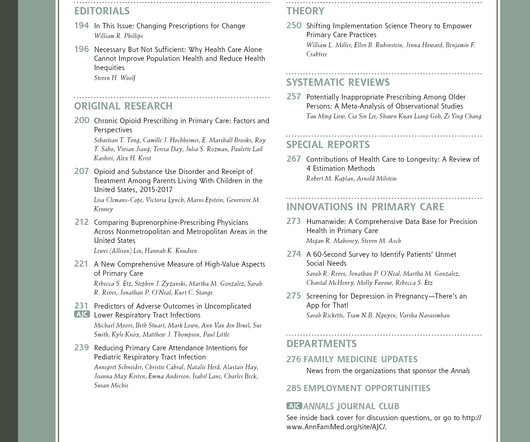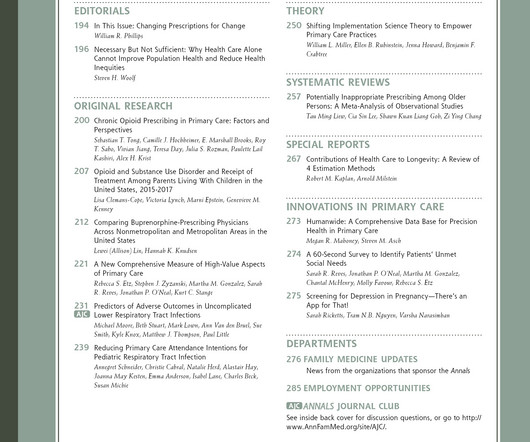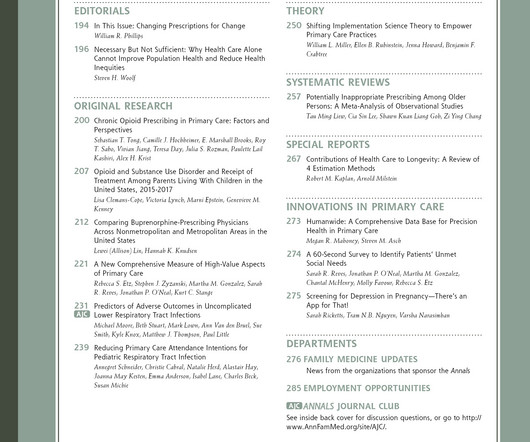Practice patterns of Ontario physicians working in 'boutique' medical clinics [Economic or policy analysis]
Annals of Family Medicine
NOVEMBER 20, 2024
Context: In Ontario, multiple organizations operate under a ‘boutique’ medicine model where patients pay a block or annual fee to access primary care services. Comparatively, physicians in general practice were more likely to see patients for mental health, chronic disease, and preventive care.












Let's personalize your content